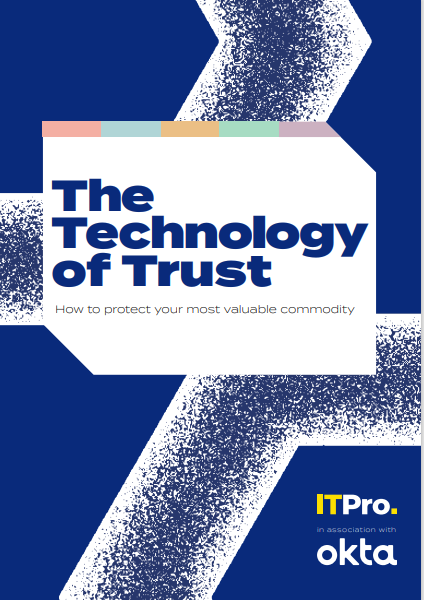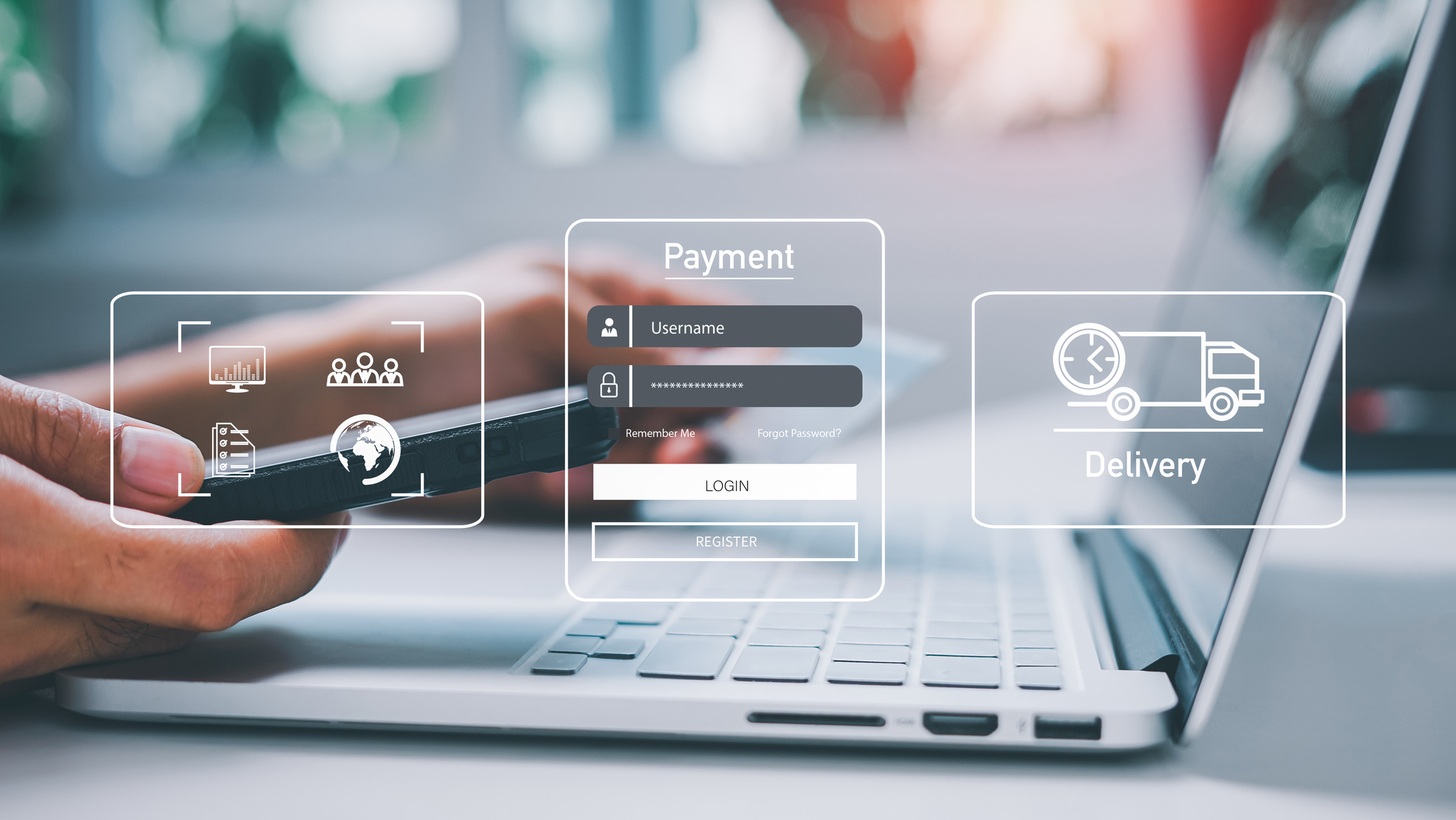Senators quiz Amazon on palm scanning tech
Lawmakers fret about the privacy implications of Amazon One


Three senators have written to Amazon with questions about the company's Amazon One palm scanning technology.
The bipartisan group expressed concerns about the biometric system's effect on privacy and its potential to bolster Amazon's market position. The letter, from senators Amy Klobuchar (D-Minn.), Bill Cassidy (R-La.) and Jon Ossoff (D-Ga.) to Amazon CEO Andy Jassy, queries the company's handling of biometric data gathered using the service.
"Amazon’s expansion of biometric data collection through Amazon One raises serious questions about Amazon’s plans for this data and its respect for user privacy, including about how Amazon may use the data for advertising and tracking purposes," the letter said.
Unveiled in September 2020, Amazon One is a contactless payment system that uses palm scanning for applications, including making payments, granting access to locations, presenting loyalty cards, or clocking into work.
The company began rolling it out at its automated Amazon Go stores, which already used technologies like computer vision to replace traditional checkout operators. It has since arrived at some Whole Foods locations, which Amazon acquired in 2017.
Amazon said the service would be an optional entry method at its stores, which would still allow customers to enter using the Amazon app. At launch, the e-commerce giant also vowed to offer customers the devices, including retailers, stadiums, and office buildings.
"Our concerns about user privacy are heightened by evidence that Amazon shared voice data with third-party contractors and allegations that Amazon has violated biometric privacy laws," said the letter, referring to reports the company violated facial recognition privacy law in Illinois by using residents' faces to train its algorithms.
Sign up today and you will receive a free copy of our Future Focus 2025 report - the leading guidance on AI, cybersecurity and other IT challenges as per 700+ senior executives
It also cited a class-action lawsuit filed this month against Amazon for allegedly violating the Illinois Biometric Information Privacy Act (BIPA) with its Alexa system.
"We are also concerned that Amazon may use data from Amazon One, including data from third-party customers that may purchase and use Amazon One devices, to further cement its competitive power and suppress competition across various markets," the senators said.
Amazon recently offered consumers a $10 credit to enroll themselves on Amazon One. To do so, customers must present their credit cards and scan their palms with the Amazon One device.
RELATED RESOURCE

Rather than storing scans locally, the devices send them back to Amazon's cloud. This was an area of concern for the senators, who compared it with biometric scanning technology from Apple and Samsung, which store information locally on the device.
The letter asked Amazon several questions, including when the company plans to expand its use of Amazon One; how many third-party customers has it sold its technology to; how many users have signed up for the service; and whether the company pairs the scans with data from biometric systems.
The senators also asked the company to describe how it uses data from the service, with a special focus on whether it uses the data to personalize advertisements or product recommendations.
Danny Bradbury has been a print journalist specialising in technology since 1989 and a freelance writer since 1994. He has written for national publications on both sides of the Atlantic and has won awards for his investigative cybersecurity journalism work and his arts and culture writing.
Danny writes about many different technology issues for audiences ranging from consumers through to software developers and CIOs. He also ghostwrites articles for many C-suite business executives in the technology sector and has worked as a presenter for multiple webinars and podcasts.
-
 The modern workplace: Standardizing collaboration for the enterprise IT leader
The modern workplace: Standardizing collaboration for the enterprise IT leaderHow Barco ClickShare Hub is redefining the meeting room
-
 Interim CISA chief uploaded sensitive documents to a public version of ChatGPT
Interim CISA chief uploaded sensitive documents to a public version of ChatGPTNews The incident at CISA raises yet more concerns about the rise of ‘shadow AI’ and data protection risks
-
 AI is “forcing a fundamental shift” in data privacy and governance
AI is “forcing a fundamental shift” in data privacy and governanceNews Organizations are working to define and establish the governance structures they need to manage AI responsibly at scale – and budgets are going up
-
 26% of privacy professionals expect a “material privacy breach” in 2026 as budget cuts and staff shortages stretch teams to the limit
26% of privacy professionals expect a “material privacy breach” in 2026 as budget cuts and staff shortages stretch teams to the limitNews Overworked, underfunded privacy teams are being left hung out to dry by executives
-
 Amazon says Russian-backed threat groups were responsible for five-year-long attacks on edge devices – and it shows a ‘clear evolution in tactics’
Amazon says Russian-backed threat groups were responsible for five-year-long attacks on edge devices – and it shows a ‘clear evolution in tactics’News Russian-backed hacker groups are exploiting misconfigured edge devices – now preferring that tactic over hunting down traditional vulnerabilities to gain access to company networks.
-
 Amazon CSO Stephen Schmidt says the company has rejected more than 1,800 fake North Korean job applicants in 18 months – but one managed to slip through the net
Amazon CSO Stephen Schmidt says the company has rejected more than 1,800 fake North Korean job applicants in 18 months – but one managed to slip through the netNews Analysis from Amazon highlights the growing scale of North Korean-backed "fake IT worker" campaigns
-
 EU lawmakers want to limit the use of ‘algorithmic management’ systems at work
EU lawmakers want to limit the use of ‘algorithmic management’ systems at workNews All workplace decisions should have human oversight and be transparent, fair, and safe, MEPs insist
-
 Data (Use and Access) Act comes into force
Data (Use and Access) Act comes into forcenews Organizations will be required to have an effective data protection complaints procedure and fulfil new requirements for online services that children are likely to use
-
 UK businesses patchy at complying with data privacy rules
UK businesses patchy at complying with data privacy rulesNews Companies need clear and well-defined data privacy strategies
-
 Data privacy professionals are severely underfunded – and it’s only going to get worse
Data privacy professionals are severely underfunded – and it’s only going to get worseNews European data privacy professionals say they're short of cash, short of skilled staff, and stressed
